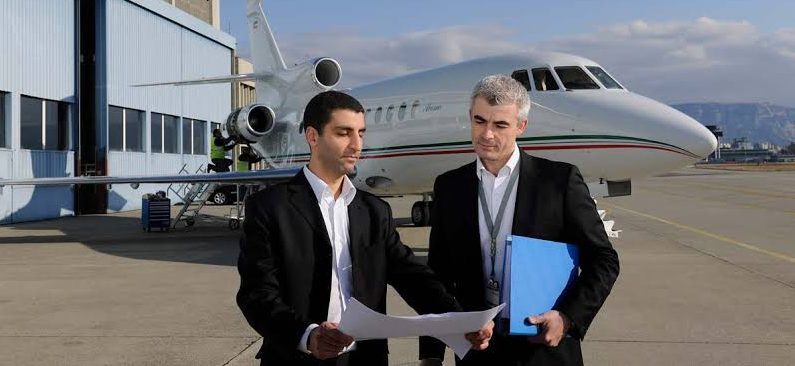Understanding the Role of Aircraft Title Companies in Jet Transactions
Meta Description: Explore the crucial role of aircraft title companies in private jet transactions. Learn how these experts ensure smooth, secure aircraft sales and purchases.
Introduction to Aircraft Title Companies in Jet Transactions
Aircraft title companies play a pivotal role in the complex world of private jet transactions. These specialized entities serve as the backbone of aircraft ownership transfers, ensuring that the process is smooth, legally compliant, and secure for all parties involved. In essence, an aircraft title company acts as a neutral third party that meticulously examines and verifies the ownership history and legal status of an aircraft before it changes hands.
The importance of title companies in private jet sales cannot be overstated. They provide a critical layer of protection for both buyers and sellers, helping to mitigate risks associated with high-value transactions. By conducting thorough title searches, managing escrow services, and facilitating proper documentation, these companies help prevent potential legal disputes and financial losses that could arise from unclear or contested aircraft ownership.
The Evolution of Aircraft Title Services
The concept of aircraft titles has evolved significantly since the early days of aviation. Historically, aircraft ownership was often documented through simple bills of sale and rudimentary registration systems. However, as the aviation industry grew more complex and the value of aircraft increased, the need for more sophisticated title services became apparent.
In the modern era, aircraft title companies face a myriad of challenges. The globalization of the aviation market has introduced international regulatory complexities. Additionally, the increasing sophistication of aircraft financing arrangements and the potential for multiple liens or encumbrances on a single aircraft have made the title search process more intricate than ever before.
Understanding the Aircraft Title Search Process
A comprehensive title search is at the heart of what aircraft title companies do. This process involves a meticulous examination of an aircraft’s ownership history and any potential claims against it. The steps typically include:
- Searching Federal Aviation Administration (FAA) records
- Checking international registries
- Investigating state and local tax records
- Examining court records for potential litigation involving the aircraft
Key documents examined during the search include:
- Aircraft registration forms
- Bills of sale
- Financing statements
- Lease agreements
- Maintenance records
- Airworthiness certificates
This exhaustive search helps ensure that the buyer is acquiring a “clean” title, free from any hidden claims or legal issues that could jeopardize their ownership rights.
The Role of the Federal Aviation Administration (FAA) in Aircraft Titles
The FAA plays a central role in the aircraft title process in the United States. It maintains the official aircraft registry, which is the primary source of information for aircraft ownership and liens. Title companies work closely with the FAA to access and interpret these records.
The interaction between title companies and the FAA is crucial. Title companies must be well-versed in FAA regulations and procedures to effectively navigate the system. They often have direct lines of communication with FAA officials to resolve discrepancies or obtain clarifications on complex title issues.
Identifying and Resolving Liens and Encumbrances
One of the most critical functions of an aircraft title company is identifying any liens or encumbrances on an aircraft. These can include:
- Mechanic’s liens for unpaid maintenance work
- Tax liens from federal, state, or local authorities
- Security interests held by lenders
- Judgments against the aircraft owner
When such issues are discovered, title companies work diligently to resolve them. This may involve negotiating with lienholders, facilitating payoffs, or obtaining releases. The goal is to ensure that the aircraft can be transferred with a clear title, protecting the buyer’s interests and investment.
Escrow Services in Private Jet Transactions
Escrow services are a crucial component of aircraft title company offerings. The escrow process provides a secure method for handling the large sums of money involved in jet transactions. Here’s how it typically works:
- The buyer deposits the purchase funds into an escrow account managed by the title company.
- The title company verifies that all conditions of the sale have been met, including a clear title.
- Once everything is in order, the title company releases the funds to the seller and transfers the title to the buyer.
This process protects both parties by ensuring that the exchange of money and ownership occurs simultaneously and only when all requirements are satisfied.
Legal Compliance in Aircraft Title Transfers
Navigating the legal landscape of aircraft title transfers requires extensive knowledge of both federal and state regulations. Title companies must ensure compliance with:
- FAA regulations governing aircraft registration and transfers
- State laws regarding sales tax and aircraft registration
- International treaties such as the Cape Town Convention for cross-border transactions
Additionally, title companies must stay abreast of changes in aviation law and adjust their practices accordingly to maintain compliance and protect their clients’ interests.
Documentation Requirements for Jet Transactions
The paperwork involved in transferring aircraft ownership is extensive and must be meticulously prepared. Essential documents include:
- Bill of Sale
- Aircraft Registration Application
- Lien Release Forms (if applicable)
- Export/Import documentation (for international transfers)
- Airworthiness certificates
Common pitfalls in documentation often arise from incomplete forms, incorrect information, or missing signatures. Title companies play a crucial role in reviewing all documents for accuracy and completeness, helping to avoid delays or legal issues down the line.
Risk Mitigation Strategies in Aircraft Purchases
Title companies employ various strategies to protect buyers and sellers in aircraft transactions. These may include:
- Conducting UCC (Uniform Commercial Code) searches to uncover any hidden liens
- Verifying the authenticity of all documents related to the aircraft
- Ensuring proper insurance coverage is in place before the transfer of ownership
The due diligence process in jet acquisitions is extensive. Title companies often work closely with aviation attorneys and accountants to provide a comprehensive risk assessment for their clients.
The Importance of Title Insurance in Jet Ownership
Aircraft title insurance is a specialized product that protects aircraft owners against unforeseen title defects. There are two main types:
- Owner’s Title Insurance: Protects the aircraft owner
- Lender’s Title Insurance: Protects the lender’s interest in the aircraft
Title insurance becomes particularly important in cases involving:
- High-value aircraft
- Complex ownership histories
- International transactions
While not always required, title insurance provides an additional layer of protection against potential financial losses due to title disputes.
International Considerations in Aircraft Titles
Cross-border jet transactions introduce additional complexities to the title process. Title companies must navigate:
- Different legal systems and ownership concepts
- Varying registration requirements across countries
- Export and import regulations
- Currency exchange issues
Expertise in international aviation law is crucial for title companies handling global transactions. They must ensure compliance with both the origin and destination country’s regulations while facilitating a smooth transfer of ownership.
Choosing the Right Aircraft Title Company
Selecting the appropriate title company is crucial for a successful aircraft transaction. Key qualifications to look for include:
- Extensive experience in aviation law and FAA regulations
- A strong track record of successful transactions
- Membership in industry associations such as the National Aircraft Finance Association (NAFA)
When selecting a title company, potential clients should inquire about:
- The company’s experience with similar aircraft types and transaction values
- Their process for handling international transactions
- The range of services offered, including escrow and title insurance
Technology and Innovation in Aircraft Title Services
The aircraft title industry is embracing technological advancements to improve efficiency and accuracy. Digital innovations include:
- Online title search platforms
- Electronic document filing systems
- Blockchain technology for more secure and transparent record-keeping
These technological advancements are streamlining processes, reducing turnaround times, and enhancing the overall security of aircraft transactions.
Case Studies: Complex Aircraft Title Resolutions
Real-world examples of challenging title issues often involve:
- Aircraft with multiple previous owners across different countries
- Undisclosed liens discovered late in the transaction process
- Discrepancies between FAA records and actual ownership status
Successful resolutions typically require a combination of legal expertise, negotiation skills, and creative problem-solving. These case studies serve as valuable learning experiences for the industry, highlighting the importance of thorough title searches and expert handling of complex situations.
The Future of Aircraft Title Services
The private aviation industry is continually evolving, and with it, the role of aircraft title companies. Emerging trends include:
- Increased focus on cybersecurity in digital title management
- Growing demand for rapid, same-day title services
- Expansion of services to cover new types of aircraft, such as electric vertical takeoff and landing (eVTOL) vehicles
As the industry progresses, title companies will need to adapt to changing regulations, emerging technologies, and evolving client needs to remain effective and relevant.
Best Practices for Smooth Aircraft Title Transfers
To ensure seamless transactions, buyers and sellers should:
- Engage a reputable aircraft title company early in the process
- Provide full disclosure of any known issues with the aircraft
- Be prepared with all necessary documentation
- Allow ample time for thorough title searches and issue resolution
Common mistakes to avoid include rushing the process, neglecting to disclose known problems, or attempting to handle complex title issues without expert assistance.
The Role of Aircraft Title Companies in Market Confidence
Aircraft title companies play a crucial role in maintaining confidence in the private aviation market. By ensuring the legitimacy and clarity of aircraft ownership, they help:
- Reduce the risk of fraudulent transactions
- Increase transparency in the marketplace
- Facilitate smoother financing arrangements for aircraft purchases
The expertise provided by title companies builds trust between buyers and sellers, contributing to a more stable and reliable aviation market overall.
In conclusion, aircraft title companies are indispensable players in the world of private jet transactions. Their meticulous attention to detail, legal expertise, and comprehensive services help ensure that high-value aircraft change hands safely and securely. As the aviation industry continues to evolve, the role of these specialized companies will remain crucial in facilitating smooth, compliant, and confident aircraft ownership transfers.














